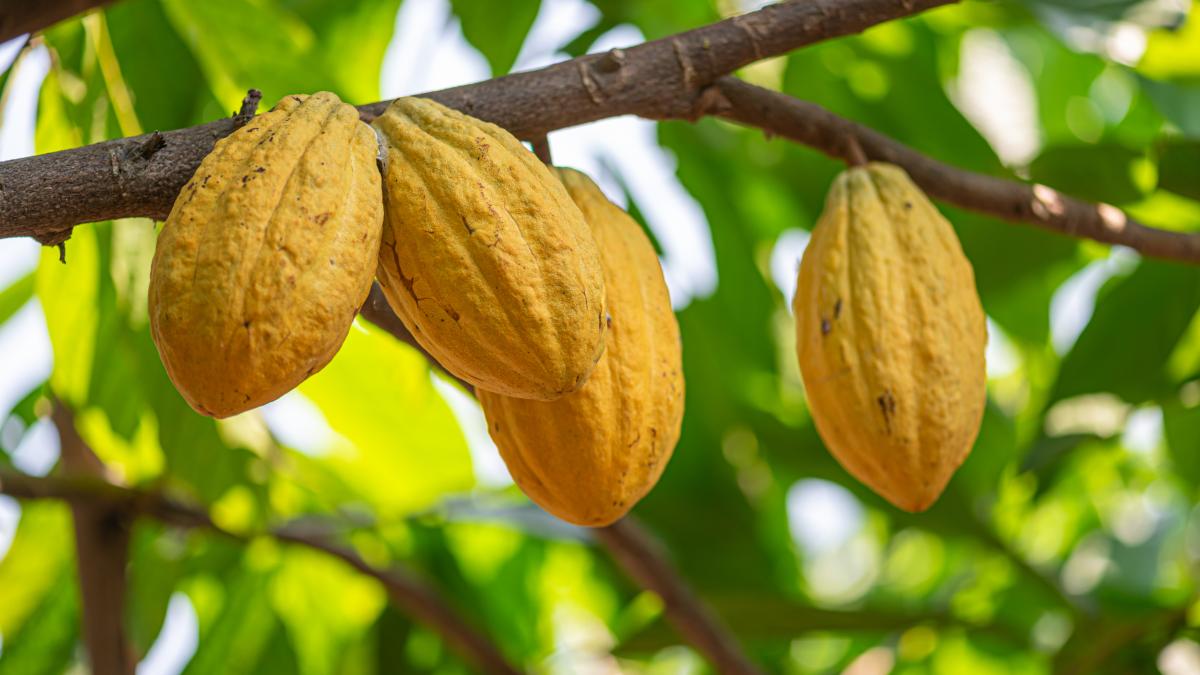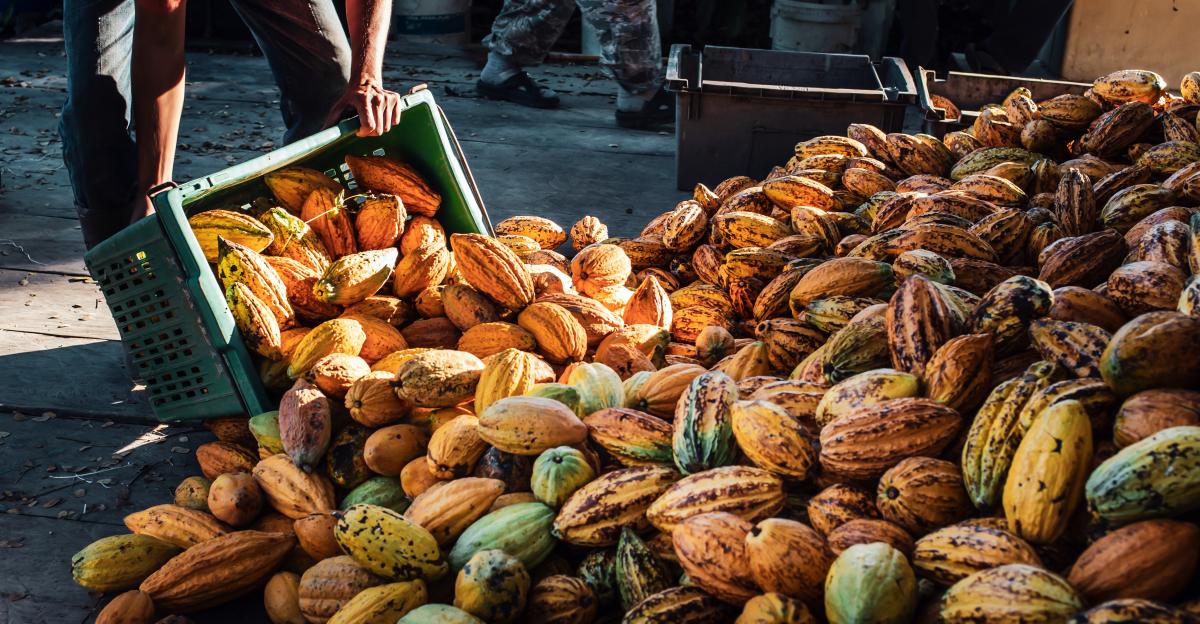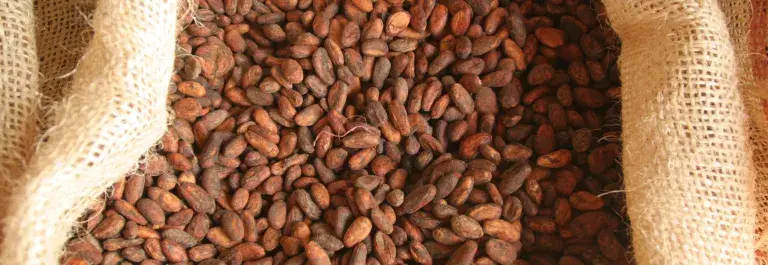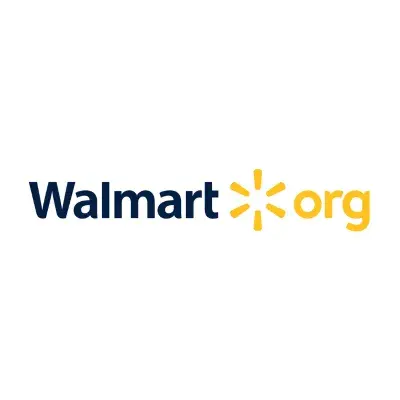Navigating EUDR: compliance and beyond | Cocoa
Supporting businesses with regulatory compliance and advancing sustainability.
Why sustainability legislation matters
Sustainability legislation has expanded rapidly in recent years. Increasingly, addressing issues such as deforestation and human rights risks within supply chains is no longer a voluntary choice by responsible businesses but a legal obligation for all. New regulations have the potential to accelerate the transition to sustainable business practices and deliver positive impacts for people and planet at scale. But they also bring challenges.
If not carefully implemented, such legislation may increase administrative burdens without driving meaningful change on the ground and may disproportionately affect producers, further entrenching existing supply chain inequalities. There is a risk that a strong focus on compliance may cause businesses to focus solely on their own sourcing footprint, rather than encouraging broader, more holistic industrywide progress.
Credible voluntary sustainability standards (VSS) have been laying the groundwork for companies to implement responsible practices for years, offering tools, frameworks, and collaborative approaches that help businesses navigate this evolving regulatory landscape.
With decades of on-the-ground experience, credible VSS are uniquely positioned to address deforestation and land conversion. They provide the strongest available evidence of impact and effectiveness, making them strong partners for businesses aiming to meet new deforestation- and conversion-free (DCF) requirements while building more resilient and responsible supply chains.
Crucially, these systems go beyond compliance. They help businesses proactively tackle broader environmental and social issues, creating long-term value and preparing them for future regulations.
This case study is part of a series that looks at how credible VSS are responding to one of the most important legislative developments: the EU Deforestation Regulation (EUDR), which aims to prevent products associated with deforestation from being sold on the EU market.
By leveraging proven standards, facilitating reliable data exchange, and managing risk across complex supply chains, credible VSS are critical in helping businesses meet DCF requirements. These case studies show how credible VSS drive not only compliance but also meaningful transformation across sectors and supply chains.
The cocoa supply chain
Cocoa is produced from the seed of the tropical Theobroma cacao tree and is the key ingredient in chocolate products enjoyed by millions of consumers across the globe. Cocoa production is concentrated in West Africa, particularly Côte d’Ivoire and Ghana and mostly grown by smallholder farmers. It is a primary livelihood source for approximately six million farmers around the world.
The cocoa sector faces several significant challenges. Rising global demand for the raw commodity and economic pressures on farmers have resulted in rapid expansion of cocoa production in key tropical forest zones of the world. Intense cocoa production and the need to replace aging trees has led to expansion of production into forested zones. Cocoa farmers' livelihoods are increasingly at risk due to deforestation driven by economic pressure, and climate change, which is causing declining productivity and profitability.

Key players and credible VSS
Various sustainability standards, certification systems and collaborative initiatives aim to improve the livelihoods and incomes of cocoa farmers while enhancing production practices. Two prominent international VSS active in the sector are the Rainforest Alliance and Fairtrade International.
Other standards include ISO 34101 – the first sustainability standard for an agricultural product adopted by the International Organization for Standardization (ISO) – and the emergent African Standard for Sustainable Cocoa (ARS-1000). Governments in both Côte d’Ivoire and Ghana have made ARS-1000 mandatory.
Beyond these standards, several groups and alliances are working to improve sustainability and transparency across cocoa supply chains. For example, the World Cocoa Foundation plays a central role as the primary multi-stakeholder body focused on sectorwide governance and sustainability. Other initiatives include the Cocoa & Forests Initiative, and company-led efforts like Cocoa Life (Mondelēz International) and Nestle's Income Accelerator Program, developed in partnership with the Rainforest Alliance, among others.
Understanding the EUDR: challenges and requirements for cocoa
The EUDR applies to seven commodities, including cocoa. It requires businesses selling these products in the EU to conduct due diligence to ensure they are legally produced and not linked to deforestation or forest degradation after 31 December 2020. While aimed at driving sustainability, compliance presents some specific challenges for the cocoa sector.
What products are in scope of EUDR?
Currently, the EUDR applies to a wide range of cocoa-related products. This includes raw cocoa materials such as beans, shells, husks, and other waste, as well as processed products like cocoa paste, cocoa butter, and cocoa powder. Importantly, certain finished goods – including chocolate and other manufactured cocoa-based products – are also within scope. Unlike cocoa, some other commodities (e.g. palm oil) are limited to raw materials under the regulation. You can access the full list of cocoa-related products covered in annex 1 of the EUDR.
The EUDR requires the precise geolocation of a production area, which can be a significant challenge to ascertain in the context of smallholder production. The sourcing of cocoa is currently split 50:50 between direct and indirect supply chains. In the latter case, cocoa is purchased via local intermediaries with raw material from various production plots potentially being mixed, complicating the tracing of cocoa beans back to plot. The difficulty with providing 100% traceability is most challenging for smallholder farmers who risk losing market access to the EU if their conditions of production and trade do not meet traceability requirements. This will directly affect the livelihoods and income of millions of farmers who may not have the financial means to set up their traceability and compliance systems at source.
The process of collecting and validating quality geolocation data is labour intensive. This burden often falls on the farmer organisations and their members, potentially diverting resources from other essential farming activities. Fairtrade International’s producer networks estimate that each producer organisation requires between €5,000 and €15,000 to fund geolocation data collection, depending on the region and size of the groups. This could put further financial pressure on cocoa producers already struggling with low incomes, climate change and economic insecurity.
The EUDR’s legal production requirement means that, as well as being deforestation-free, products in scope must have been produced in compliance with the laws of the country of production. Proving legality can be difficult – particularly when it comes to land rights.
In major cocoa-producing countries like Ghana and Côte d’Ivoire, most land is held under customary tenure rather than formal titles: around 80% of land in Ghana is under customary ownership and largely undocumented, and in Côte d’Ivoire, only about 4% of rural land is covered by a certificate or title. While farming on such land is often legal, most smallholders lack documentation to prove their land-use rights – making it harder to demonstrate compliance.
How credible VSS can support businesses with regulatory compliance
Credible VSS offer a range of system capabilities and strategies to support company due diligence and, in turn, regulatory compliance. However, they are not a substitute for companies’ own responsibility to demonstrate compliance with the EUDR.
For cocoa, both the Rainforest Alliance and Fairtrade International's systems can support with EUDR, ensuring certified producers and partners are well equipped to meet its requirements. Below, we summarise some key points; a more detailed overview of how each organisation supports EUDR compliance can be found on their websites:
The Fairtrade cocoa standard requires certified producer organisations to strengthen their deforestation prevention, monitoring and mitigation. While Fairtrade’s deforestation cut-off date for cocoa is 2018 – earlier than the EUDR’s 2020 cut-off – the system is being adapted to further support businesses with the regulation. In line with the EUDR, farms larger than four hectares or located in high-risk areas must use polygon mapping, while smaller farms may use single geolocation points.
To support deforestation monitoring, Fairtrade International has partnered with Satelligence to provide free satellite data to all certified cocoa producer organisations. This helps cooperatives understand deforestation risks in their supply base and share relevant information with trade partners. Fairtrade also offers essential guidance on the data and formats required by the EUDR, along with detailed multilingual support materials to ensure producers can access and use this information effectively. Fairtrade support materials provided to cooperatives are combined with access to direct support from Fairtrade’s producer networks who are based in the countries of production. This cooperative support includes assistance from data analysts to help cooperatives who may encounter challenges with geolocation data quality.
The Rainforest Alliance’s Sustainable Agriculture Standard does not allow the certification of farms where natural ecosystems were destroyed or converted after 1 January 2014, also going beyond the EUDR’s cut-off date. They’ve developed automated deforestation risk assessment maps and require all certified farms to be GPS mapped with satellite verification. Deforestation risk is assessed using forest baseline data that covers farms and risks beyond certified crops. These results are shared with farm certificate holders and the certification bodies that audit them. All cocoa farm certificate holders are also audited against additional EUDR-aligned requirements.
Credible VSS can play a key role in verifying information required to comply with the EUDR’s legal production requirements. The Rainforest Alliance’s Sustainable Agriculture Standard requires legal and legitimate land use rights, which auditors verify through official documents or the absence of land disputes. All farm certificate holders must comply with applicable laws and collective bargaining agreements. Certification bodies undertake an applicable law assessment for each country to ensure auditors can verify legal compliance. Fairtrade International’s Standards require producers and hired labour operations to comply with national laws on land tenure, labour rights, and environmental protection, with audits conducted by FLO-CERT, Fairtrade’s independent certification body, to verify compliance.
Fairtrade International recognises that data and information are key to tracing products back to their origin. It provides support to producer organisations through its regional producer networks, offering guidance on EUDR data requirements and facilitating the collection of geolocation data. Producer organisations submit data via FairInsight, a platform which enables producers to report and share information with their trade partners. Crucially, Fairtrade’s approach places producer ownership of this data at its core.
Fairtrade offers various chain of custody (CoC) models, depending on the product:
- Identity preserved (IP): traceable to the producer organisation.
- Segregated: certified and non-certified products are kept separate.
- Mass balance: certified and non-certified products may be mixed, with strict volume tracking.
The Fairtrade Cocoa Standard requires segregation of fairtrade cocoa from non-certified cocoa, from the producer organisation level up to first buyer. Additionally, geolocation and plot-level traceability data may be transferred with certified cocoa to support EUDR compliance. Traders within the Fairtrade system may use IP and segregated CoC models to support their EUDR compliance. The mass balance CoC model remains a permitted and recognised model for cocoa.
Rainforest Alliance also offers multiple CoC models for cocoa:
- Identity preserved: traceable to an individual certified farm or farm group.
- Mixed IP: material from multiple certified farms or farm groups is mixed but remains traceable to one or more known groups of producers.
- Segregated: certified and non-certified products are kept separate.
- Mass balance: certified and non-certified material may be mixed, with strict volume tracking.
For supply chains choosing IP or mixed IP models, certified supply chain actors can use the Rainforest Alliance Certification Platform and digital dashboard to identify farm certificate holders who are EUDR-aligned. These farms and farm groups have provided and agreed to share geolocation data for all relevant cocoa plots, with polygon mapping required for larger plots. The Rainforest Alliance supports data collection at farm level with tools and training and makes EUDR relevant data available to supply chain certificate holders in downloadable files and in a format compatible with the EU System.
Since cocoa sourced via segregated or mass balance supply chains is not traceable back to farm level, EUDR-alignment needs to be ensured outside of the Rainforest Alliance certification and traceability system. However, a list of EUDR-aligned farm certificate holders is publicly available on the Rainforest Alliance website.
Traceability is central to EUDR compliance, and credible VSS like Fairtrade and Rainforest Alliance help ensure it is implemented fairly through strong engagement across the supply chain. They clarify roles and responsibilities not only for traders and importers, but also for brands and producers, support data transfer through digital platforms, and help share compliance responsibilities, reducing the risk that smallholders are excluded. This turns traceability from a box-ticking exercise into a foundation for more inclusive and resilient supply chains.

Beyond compliance
There is a risk that the EUDR and similar regulations could encourage businesses to reduce their sourcing exposure to smallholders and favour large players in an effort to reduce the cost of due diligence and mitigate risk. This could weaken businesses’ supply chain resilience and reduce incentives for smallholders to avoid land-use change and deforestation. Sustainability systems offer an effective and inclusive way to strengthen supply chains, meet corporate sustainability goals, and prepare producers, manufacturers and sourcing companies for evolving regulations.
Both schemes go beyond regulatory requirements by addressing the underlying drivers of deforestation, particularly poverty and insecure livelihoods. Fairtrade promotes fair pricing, supports income improvements through Fairtrade prices, and empowers producer organisations to invest the Fairtrade Premium in forest protection. A Fairtrade International project funded by the ISEAL Innovations Fund is working to strengthen smallholder control over their data and influence in the supply chain. The Fairtrade approach is also one which goes beyond mere regulatory compliance, aligning with an ecosystem approach to data ownership and a commitment to protecting forests that predates the EUDR. Further, Fairtrade views the relationship between achieving economic gains and protecting forests as mutually reinforcing; By addressing root causes of deforestation such as poverty through income-relevant interventions, producers are better positioned to adopt climate-resilient practices, including adaptation and mitigation plans and good agroecological practices that help combat deforestation. Likewise, sustainable agricultural practices have the potential to positively impact producers’ economic gains.
As well as supporting livelihoods, the Rainforest Alliance stresses the crucial role of landscape-level approaches, investing in sustainable land management, biodiversity conservation, restoring degraded lands and climate-smart, regenerative agriculture. By taking a broader ecosystem-level approach, it encourages companies to support geodata collection and invest in producer livelihoods as part of longterm forest conservation. This direct economic focus on improving livelihoods to combat deforestation is an important holistic approach to tackling issues like deforestation, going well beyond a regulatory approach that bans the entry of products linked to deforestation in the EU market.
Both organisations play a vital role in enabling smallholder producers to meet complex data and risk monitoring requirements. Rather than placing the burden solely on producers, Fairtrade and the Rainforest Alliance provide guidance, training, and in-field support to facilitate the collection and use of geolocation and deforestation-risk data.
Fairtrade offers practical resources and access to satellite-based deforestation data, while the Rainforest Alliance has developed automated risk assessment tools and customised satellite-based risk maps that support farm groups and certification bodies with proactive risk monitoring.
By embedding these services within their sustainability frameworks, both systems reduce the administrative burden on producers and ensure that the producers themselves retain data ownership. This approach goes beyond compliance by strengthening long-term producer capacity, improving decision-making, and ensuring that smallholders can actively participate in and benefit from global supply chains.
Credible VSS, including Fairtrade and Rainforest Alliance, provide reliable guidance, tools, and support to help businesses meet their EUDR requirements while fostering more resilient, inclusive, and sustainable cocoa supply chains.
- Fairtrade Standard for Cocoa
- Fairtrade Risk Map – Cocoa
- Fairtrade Impact Platform
- The effect of Fairtrade on forest protection and deforestation prevention
- Rainforest Alliance list of EUDR-aligned farm certificate holders
- Rainforest Alliance Learning Network E-course on EUDR
- How the Rainforest Alliance Supports EUDR Compliance from Farm to Retailer
- Rainforest Alliance Tools for Deforestation-free Supply Chains
- ASI’s Independent Assessment of Rainforest Alliance’s Alignment with EUDR Guidance Document

